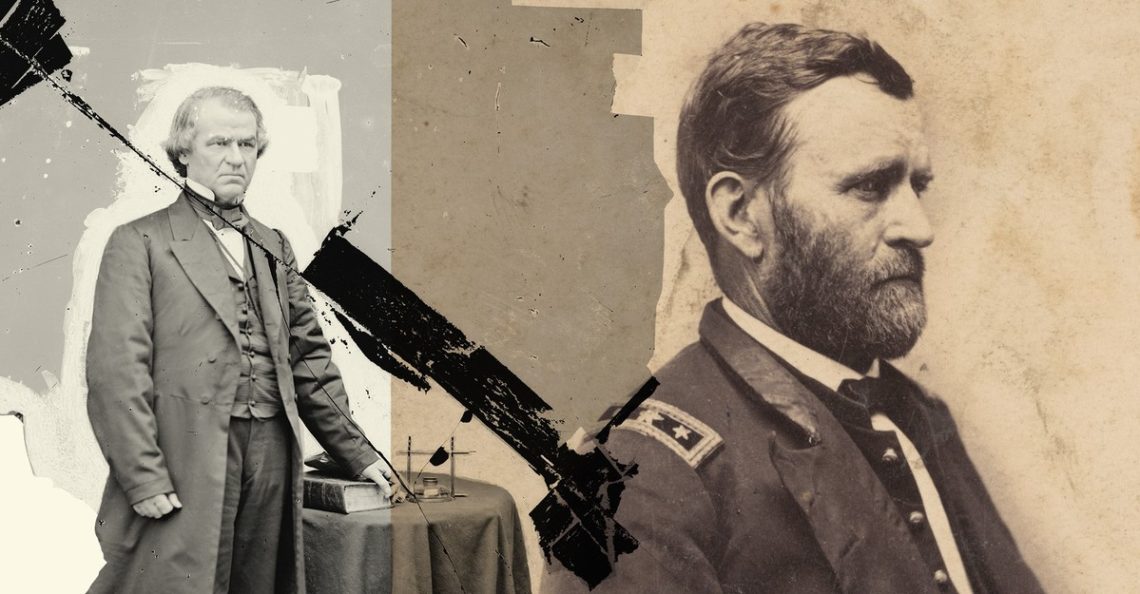The American military is not supposed to intervene in domestic politics. This is the long-standing norm governing U.S. civil-military relations. The Constitution asserts civilian control over the military, divided between the executive and legislative branches, as a means of preventing the military from becoming a partisan force of domestic oppression.
President Donald Trump has destabilized this arrangement more than any president in recent memory. He has imposed National Guard forces on unwilling governors and mayors on the dubious grounds that American cities are more violent than battlefields in Afghanistan. He has invoked laws designed to limit the domestic use of the military—the Insurrection Act, for example—for the opposite purpose. And he has openly encouraged military partisanship, such as when he held political rallies with military audiences at Fort Bragg and Naval Station Norfolk, encouraging them to cheer his disparagement of Democratic governors.
The last time the American military found itself under anything close to this kind of political pressure was during the constitutional crisis of 1866–67. At that time, Ulysses S. Grant was the commanding general of the U.S. Army. The Civil War had recently ended, and President Andrew Johnson faced monumental decisions: On what terms would his administration allow the readmission of Confederate states to the Union, and what civic and economic roles would Black Americans play in the antebellum South? Even as the administration struggled to bring the conquered southern states under its control, an insurgency took root there, terrorizing Black citizens, Republicans, and northern businessmen.
Congress passed legislation calling for military rule over the South and active enforcement of the rights of Black citizens there. Johnson rejected this Reconstruction policy as illegitimate. He preferred a more lenient approach that would allow the southern states to govern themselves, even if this meant that Confederate leaders would regain power and impose policies that infringed on the rights of Black citizens.

Grant was not a natural politician, but he was the most popular figure in the country at the time. Johnson pressed him to appear at partisan White House events, and Grant did as he was asked—he went so far as to participate in a three-week political barnstorming tour with Johnson. He was seen widely as providing cover for the president’s policies, which were failing. Violence spiked in the South, and Johnson sent Grant to tour the region and produce an exculpatory report. Grant later repudiated that report because the insurgency, intent on restoring the antebellum order, had become impossible to ignore.
But why did he write it in the first place? Perhaps he believed that loyal service to the president meant propping up his unpopular policies. Maybe he was somehow unaware of the violence already terrorizing Black Americans and those who supported their rights. Perhaps his own political ambitions had begun to dawn, and he wanted to placate a public weary of the burdens of war. Whatever the reason, the moment was a low one—and it preceded a radical turn in Grant’s thinking on Reconstruction and his relationship with the president.
Grant’s most serious test came in 1866. Tensions between Johnson and Congress had come to a head. By now, the president believed that Grant and the military would side with Congress over the executive in matters of Reconstruction, and so he attempted to send Grant out of the country on an extended diplomatic mission to Mexico. Grant suggested the president instead send either General Philip Sheridan, who was already in the region, or General William Tecumseh Sherman. Grant privately told Sherman that he would disobey the order to go to Mexico because it was patently political, “a plot to get rid” of him during the constitutional crisis. But the president did not know this and instructed Sherman to take command of the army in Grant’s absence. Sherman refused, informing the president—as Grant had not—that Grant wouldn’t be going to Mexico.
Johnson castigated Grant for insubordination. He asked Attorney General James Speed whether the general could legally refuse an order to participate in the Mexico mission. Grant acknowledged that, as a serving officer, he had a responsibility to carry out the commander in chief’s military orders, but he argued that the president had no authority over him beyond the military realm. Speed allowed Grant’s justification and action to stand.
Johnson grew ever more erratic and confrontational. Grant wrote to General Sheridan that he feared the president would attempt to disband Congress by declaring it “illegal, unconstitutional, and revolutionary.” Worried that the southern states might use the political fight as a spark to reignite the Civil War, Grant removed weapons from southern arsenals and instructed Sheridan that “commanders in Southern states will have to take great care to see, if a crisis does come, that no armed headway can be made against the Union.” The concern was no exaggeration: Washington’s control of the southern states was tenuous during this period, and the nation could have easily careened into another violent disaster.
That fall, Republicans made a strong showing in congressional elections, which exacerbated tensions with the president, ultimately leading to Johnson’s impeachment. Congress passed the First Reconstruction Act, grouping the southern states into five military districts and requiring that any state that wished to govern itself ratify the Fourteenth Amendment and extend suffrage to Black men. Johnson vetoed the law, but Congress overrode the veto.
Congress also passed the Tenure of Office Act, denying the president the authority to dismiss congressionally confirmed Cabinet officers. The legislation was designed to protect Edwin Stanton, who was secretary of war and responsible for enforcing the Reconstruction Act. Congress extended the protection against removal to Grant—and additionally restricted the president from issuing orders directly to the five military governors, who were under Grant’s command. The Second Reconstruction Act, passed in 1867, gave the military authority to supervise elections and register voters in the southern states.
Johnson argued that these legislative gambits impinged on presidential authority and violated the constitutionally mandated separation of powers. He fired Stanton, then appointed Grant to the role concurrent with his military assignment. Congress responded by threatening Grant with five years in jail and a $10,000 fine unless he relinquished the civilian role; Johnson offered to personally risk serving the jail time and pay the fine if Grant upheld the president’s constitutional authority.
By this time, General Sheridan commanded the military district that included Texas and Louisiana. He was a staunch enforcer of Reconstruction who sometimes butted heads with the White House. At one point, he removed the governor of Louisiana for refusing compliance with Reconstruction—only for Attorney General Henry Stanbery to determine that military officers did not have the authority to suspend elected officials. Johnson ordered Grant to circulate Stanbery’s opinion among military commanders. Grant did so, but he told the commanders that they could interpret the ruling any way they liked. Congress passed the Third Reconstruction Act later in 1867, explicitly authorizing military governors to suspend elected officials. Johnson vetoed the bill; Congress again overrode the veto.
In a letter to Sheridan, Grant wrote: “There is a decided hostility to the whole Congressional plan for reconstruction at the ‘White House,’ and a disposition to remove you from the command you now hold. Both the Secretary of War and myself will oppose any such move, as will the mass of the people.”
Johnson did fire Sheridan in 1867—and Grant objected, but acknowledged the president’s authority rather than fighting it. However, Grant instructed new commanders not to reinstate the politicians Sheridan had removed. For this overt undermining of his policy, Johnson considered replacing Grant with Sherman, but Sherman again refused. On October 12, the president asked Grant whether he would support Congress if it called for Johnson to be arrested or deposed from office. Grant cryptically answered that he “should expect to follow orders.”
Johnson’s impeachment hearings would bring a historic culmination to the constitutional crisis in December 1867. That month, Grant was compelled to testify before the House Judiciary Committee. That the legislators questioned Grant about his policy differences with the president wasn’t remarkable. However, he was called to do something more: In the heat of a conflict over constitutional powers, one constitutional authority over the military was directing America’s senior military officer to indict the other constitutional authority over the military. Grant testified that he considered Congress, not the president, to be the controlling authority.
Grant’s comportment in the Johnson administration was perhaps the most extraordinary instance in American history of outright insubordination by a military commander to the commander in chief. But his circumstances were also extraordinarily difficult: He served a president who refused the legislative authority of Congress at a moment when a violent insurgency gripped the South and Black Americans were attempting to take their rightful place as citizens. Congress impeached a president for the first time during this period, while also asserting powers perhaps beyond the constitutional boundaries of its authority.
Grant was forced to arbitrate the Constitution—to choose between its two sources of civilian oversight of the military. He followed the law: In peacetime, Congress’s authority is supreme in matters of military policy. The commander in chief’s authority is supreme only in wartime.
Today, Congress is not exercising that fought-for authority to constrain executive overreach, and the military cannot substitute for its failings. Grant initially stepped into the political fracas by accepting the secretary-of-war position, and Congress brushed him back. Now, as in Grant’s day, the military cannot save the American people from the politicians they elected, or from the officials the Senate has consented to appoint. Both the problem and the remedy are civilian in nature. In fact, the only appropriate role for the armed forces in a political crisis is none at all—a verity that Grant came to appreciate only too well.
This essay was adapted from Kori Schake’s new book, The State and the Soldier: A History of Civil-Military Relations in the United States.
The post What Trump Could Learn From Ulysses S. Grant appeared first on The Atlantic.




